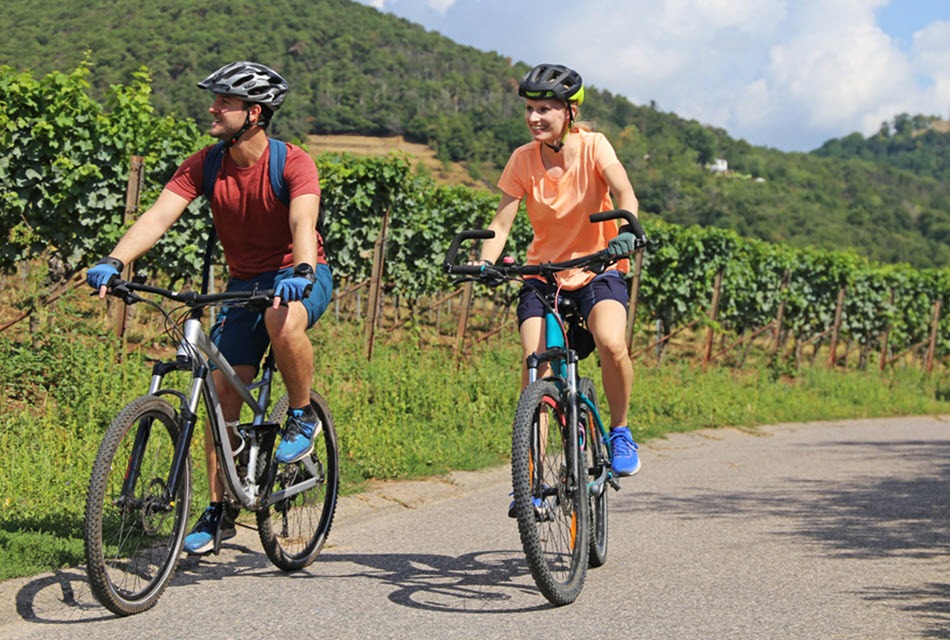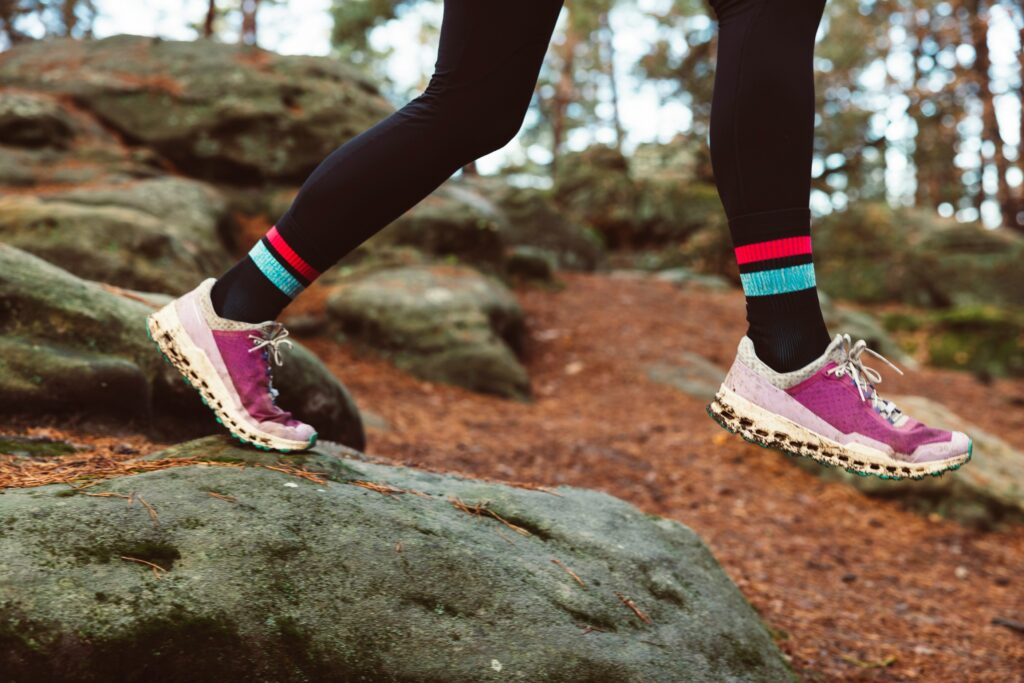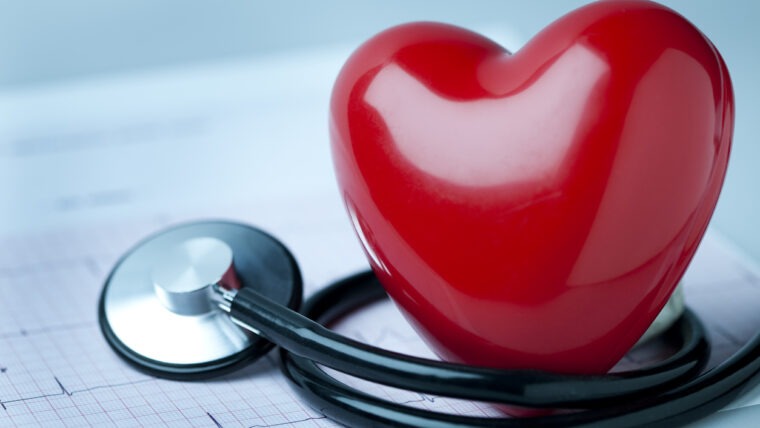Contents
Competitive Cyclist Sale Up To 50% OFF!
In recent years, some surprising facts about cycling have emerged which makes it more than just a recreational activity. From commuting to competitive sports, bikes have revolutionized how we move and stay healthy. Let’s explore some surprising facts about cycling that might change your perspective on this two-wheeled activity.
The Calorie-Burning Champion: Cycling vs. Walking
Among the many surprising facts about exercise, few people realize that cycling at a moderate pace of 12-14 mph burns approximately 500-600 calories per hour, while walking at 3.5 mph only burns about 280-350 calories per hour. The metabolic equivalent (MET) value for moderate cycling ranges from 6.0-8.0, compared to walking’s 3.5-4.3 METs.
This differential is attributed to cycling’s recruitment of larger muscle groups and increased cardiovascular demand, with cyclists showing an average oxygen consumption (VO2) of 25-35 mL/kg/min versus 12-15 mL/kg/min for walkers. During steady-state cycling, glycogen utilization rates reach 1.5-2.0 g/min, approximately double that of walking, with a corresponding respiratory exchange ratio (RER) of 0.85-0.95, indicating a higher proportion of carbohydrate metabolism.
Competitive Cyclist Black Friday Sprint! Up to 50% OFF
Research from Harvard Medical School confirms that even leisurely biking surpasses walking in terms of energy expenditure. This difference becomes even more pronounced when comparing uphill cycling, which can burn up to 800 calories per hour, to uphill walking at about 400 calories per hour.
The Mental Health Boost: Beyond Physical Exercise
While examining surprising facts about physical activities, researchers found that cyclists report 21.6% lower stress levels compared to non-cyclists, according to a 2018 study published in The Lancet Psychiatry. This reduction in stress isn’t just subjective – researchers have documented decreased cortisol levels (the stress hormone) in regular cyclists, with morning salivary cortisol showing an average reduction of 15-20% in regular cyclists compared to sedentary controls.
“Reduce stress naturally with our Premium Bike Computer – tracks cortisol-crushing rides with heart rate monitoring and route mapping.” CLICK HERE
The neurobiological benefits extend beyond stress reduction – cycling has been shown to increase BDNF (Brain-Derived Neurotrophic Factor) levels by up to 32%, promoting neuroplasticity and hippocampal growth. Additionally, regular cycling sessions of 30+ minutes trigger a 2-3 fold increase in endocannabinoid production, specifically anandamide, which contributes to the characteristic “runner’s high” and has anxiolytic effects. EEG studies have demonstrated enhanced alpha wave activity, associated with relaxation and mental clarity, during and up to 2 hours after cycling sessions.
Cognitive Enhancement Through Pedal Power
Among the surprising facts about brain health, research from the University of Illinois found that cycling can improve cognitive performance by up to 15%. Through fMRI studies revealing increased activation in the prefrontal cortex and anterior cingulate cortex during cognitive tasks, researchers documented significant neurological improvements.
The study demonstrated enhanced theta wave synchronization in the prefrontal regions, a 13% increase in hippocampal volume, elevated levels of neurotransmitters like norepinephrine, improved white matter integrity, and enhanced myelination of neural pathways, particularly in the corpus callosum. These improvements were most pronounced in cyclists who maintained an average heart rate of 135-150 BPM during 45-minute sessions, suggesting an optimal physiological window for cognitive enhancement through aerobic exercise.
- 29% improvement in problem-solving abilities, correlating with enhanced theta wave synchronization in the prefrontal region
- 27% better memory retention, associated with a 13% increase in hippocampal volume and elevated levels of neurotransmitters like norepinephrine
- 15% faster reaction times, linked to improved white matter integrity and enhanced myelination of neural pathways, particularly in the corpus callosum
- 25% increase in creative thinking, corresponding with greater functional connectivity between the default mode network and executive control network
Cardiovascular Benefits: The Heart of the Matter
When looking at surprising facts about heart health, the British Medical Association’s findings stand out: cycling just 20 miles a week reduces the risk of heart disease by 50%. Additional research shows:
- 15% lower risk of heart attack for regular cyclists
- 31% decrease in cardiovascular disease risk
- 18% reduction in coronary artery calcification
- 12% improvement in overall blood circulation
Distance and Efficiency: The Power of Pedals
Among the most surprising facts about human transportation, a bicycle is the most efficient form of human-powered movement, converting 90% of power input into forward motion. Compare this to:
I. Walking: 65% efficiency
II. Swimming: 4% efficiency
III. Car driving: 20% efficiency
Conclusion
These surprising facts about cycling demonstrate why this activity has gained such popularity worldwide. From its superior calorie-burning efficiency to its remarkable impact on mental health, cognitive function, and cardiovascular wellness, cycling offers benefits that extend far beyond basic transportation.
Whether you’re a competitive cyclist, daily commuter, or weekend rider, understanding these surprising facts can help appreciate the full scope of cycling’s impact on human health and capability. The evidence-based benefits of cycling continue to emerge through ongoing research, supporting its role as a transformative activity for both body and mind.
Remember, these surprising facts aren’t just statistics – they represent real opportunities for improving your health, reducing your environmental impact, and enhancing your quality of life through one simple activity: riding a bicycle.
 |
 |
We earn from qualified Amazon purchases with NO cost to you. ANY item that you need or were going to purchased anyway through any of our links, helps support this site. Thank you for your support!







